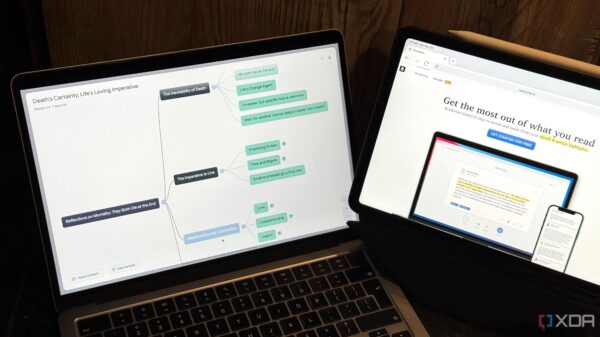OpenAI’s ChatGPT is preparing to enter the adult content market, as CEO Sam Altman announced the company’s intention to allow its chatbot to engage in “erotica for verified adults.” This shift comes after three years of restricting mature content and reflects a broader trend within the artificial intelligence industry, where sexualized AI has already gained traction.
The potential for profiting from adult-themed AI is significant. Since the surge in AI-generated imagery and text in 2022, sexual content has been a major draw for many AI tools. Early adopters of mature AI faced various challenges, including legal issues and ethical dilemmas, as numerous users sought companionship or entertainment from these technologies. Altman stated that OpenAI seeks to provide “more user freedom for adults,” while also implementing new limits for younger users.
In a post on the social media platform X, Altman elaborated on the company’s approach, comparing it to how society regulates other forms of entertainment, such as R-rated films. This move positions OpenAI to diversify its offerings and potentially increase revenue. Currently, the majority of paid subscriptions to ChatGPT are primarily aimed at professional usage. However, introducing a chatbot capable of facilitating intimate or romantic interactions could serve as a lucrative avenue for the company, which is currently valued at approximately $500 billion yet struggles with profitability.
According to Zilan Qian, a fellow at Oxford University’s China Policy Lab, the adult sector within AI chatbots already boasts around 29 million active users, not including those who use general chatbots for romantic engagements. This figure highlights the growing interest in chatbots designed for emotional and sexual connection. However, the rise in usage also raises concerns.
OpenAI is currently facing a lawsuit linked to the tragic suicide of a 16-year-old ChatGPT user, while another AI platform, Character.AI, is embroiled in legal issues related to a chatbot that allegedly fostered a harmful relationship with a minor. Qian expresses apprehension about the potential impact of mainstream chatbots on real-world relationships, noting that AI designed for continuous interaction could exacerbate existing issues in human connections.
The concept of humans forming emotional bonds with machines has long been a subject of literature and folklore, from the myth of Pygmalion to contemporary science fiction. OpenAI, originally founded as a nonprofit with a mission to safely develop advanced AI, now finds itself at a crossroads. In an August podcast, Altman acknowledged the company’s attempts to resist the lure of quick revenue through products that might conflict with its long-term goals.
One such example he mentioned was the reluctance to introduce a sexbot avatar in ChatGPT. Meanwhile, companies like Civitai, based in Idaho, have already ventured into the realm of adult content. Co-founder Justin Maier revealed that his platform intentionally allowed mature content upon launch to cater to user interests. Civitai’s early strategy aimed to harness the popularity of AI-generated art tools such as Stable Diffusion, which are often used to create adult-themed images.
Maier noted that training AI models on mature themes led to improved capabilities in human anatomy representation, ultimately benefiting the broader community of users interested in diverse content. However, this approach also attracted significant scrutiny. Civitai has since implemented measures to filter out harmful content, particularly images depicting minors, following increasing pressure from regulators and payment processors.
In contrast, Nomi, a Baltimore-based startup, has also embraced mature content but with strict age restrictions. Founder Alex Cardinell emphasized that Nomi’s chatbots are designed exclusively for users aged 18 and over. While not specifically targeted for sexual interactions, Cardinell acknowledged that some users develop romantic connections with their chatbots, depending on their individual needs.
As OpenAI prepares to navigate the complexities of adult content, the implications for user safety, ethical considerations, and the future of human-AI relationships remain to be seen. The industry’s evolution will likely continue to spark debate and scrutiny while demonstrating the potential profitability of erotic AI.








































































